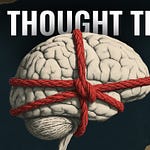Think AI is taking jobs? Think again. In fact, unemployment has stayed steady, and in some cases, even improved. Economic analyst and data journalist Joseph Politano explains how businesses are actually seeing growth in employment, with AI creating a shift in the labor market rather than replacing jobs.
Timestamps:
0:00: AI and unemployment
0:47: ChatGPT’s impact
1:17: Tectonic economic shifts
3:02: US Job churn
Transcript:
AI and unemployment
You've probably heard that AI is going to cause a rise in unemployment. And you've probably only heard those calls get louder as tools like ChatGPT and other types of generative AI have been released. I'm here to argue that AI is not going to cause a rise in unemployment. I think it's actually increased employment in the United States, not decreased it. And I think understanding why is really important to understanding how the labor market works, and what to expect for the future of American jobs.
ChatGPT’s impact
When ChatGPT was first released, you probably heard the extremely numerous takes that unemployment was going to rise very quickly, and that was going to drastically change the macroeconomy. Well, it's been more than a year since ChatGPT was released and the unemployment rate in the United States has stayed the same. In fact, if you look at employment in the U.S., it's near some of the highest levels on record- and they've only increased over the last few years since the start of the pandemic.
Tectonic economic shifts
And the economy has gone through tectonic economic shifts before. Think: the rise of the smartphone, or the rise of the internet, or the rise of the phone in the first place. Or even things as simple as elevator buttons that put elevator operators out of work. These created new jobs that more than replaced the jobs lost by technological change. In fact, if you look at data from the U.S. Census Bureau, on one of the most comprehensive surveys of businesses in America, the vast majority of businesses said that AI has not affected their employment levels at all. And if you look at the subset of businesses that said AI affected their employment levels, the majority said that it increased the number of people they had on staff, not decreased.
Humans aren't just tools, and the economy as a whole is a social construct- a social construct built to benefit humans. People, as individuals, seek the most valuable work they can do to get the biggest pay they can have, and they naturally find the kind of jobs that are valuable to others. That's not to say that all industries and all occupations are gonna be completely unaffected. There's going to be a shift away from the kind of work that AI is able to do exceptionally well, and towards the kind of work that humans can specialize in. Predicting what that work is is a lot harder than you think.
Go back 5 years, go back 10 years, people were most worried about autonomous vehicles that could put truck drivers out of work in the future. Fast forward to today, people are most worried about white-collar jobs in offices and businesses, not truck drivers.
US Job churn
Keep in mind, there's always been job churn in the U.S. economy. Millions of people are laid off every year, millions more are hired, and millions quit their jobs to find something better. That job churn is a natural part of how the U.S. economy works, and we should, as a country, care about the people who lose their jobs because they're here today, not because we're worried about AI possibly causing unemployment in the future.
















Share this post